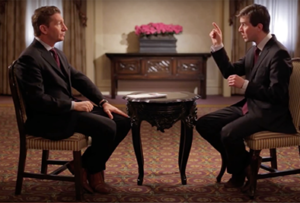As we approach the impending independence referendum in Scotland, it is noteworthy that we no longer hear economic comparisons between the so-called “Celtic Lion” and its neighbor to the West, the once “Celtic Tiger” of Ireland.
Ireland was the first of the EMU nations to embrace the austerity mantra, the first of the governments to openly engage in economic policy malpractice by abandoning their responsibilities to advance public purpose. As Stephen Kinsella of the University of Limerick notes in this interview, for all the hope of the “mangy cat” again becoming the “Celtic Tiger,” Ireland remains in pretty sorry condition.
The country’s alleged recovery is very tentative, and domestic demand remains weak. In addition, as before the crisis, a substantial portion of the growth is being repatriated offshore to foreign owners of capital. Investment now has an index number of 57 compared to 100 in the peak quarter March 2008, indicating a massive drop. Both public and private spending is well below their pre-crisis peaks.
In other words, after six years of attempted recovery the domestic economy remains nowhere near its previous levels. And Kinsella argues that so long as the austerity mantra continues to be embraced in Ireland and elsewhere across the Eurozone, it is hard to envisage the makings of a real recovery. Meanwhile, the real beneficiaries of Ireland’s economic policies are places like the United States, which continue to benefit from the net emigration of Ireland’s best and brightest, the outflow of which has also helped to reduce unemployment.
Kinsella has much more to say on this. He notes that the disarray in Eurozone economic policy is in part a reflection of the inadequacy of contemporary macro frameworks. The financial balance approach, which Kinsella embraces to forge his own coherent analysis of the problem for Ireland and the Eurozone as a whole, is a simple yet powerful lens that can help clarify relationships that otherwise remain elusive at the macroeconomic level. Without this lens, it is hard to think coherently about the options available and their possible consequences, which Kinsella eloquently discusses here.
Video


